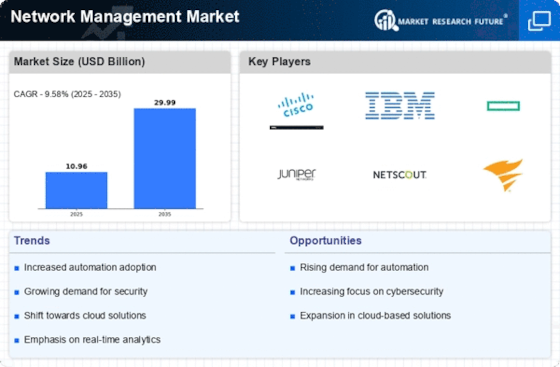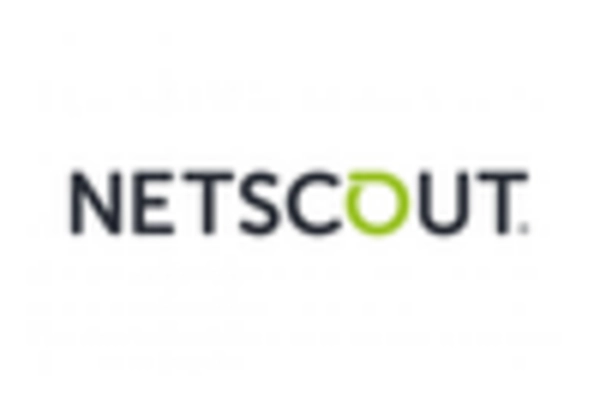Market Share
Network Management Market Share Analysis
The Network Management market is influenced by various market factors that shape its growth and potential. These factors play a crucial role in determining the adoption and success of network management solutions across different industries.
One of the key market factors driving the growth of the Network Management market is the increasing complexity of networks. With the rapid advancement of technology and the rise of digital transformation, networks have become more intricate and diverse. Organizations now have to manage a wide range of devices, applications, and data flows across their networks. As a result, the need for robust network management solutions that can monitor, analyze, and optimize network performance has become paramount.
Another significant market factor is the growing adoption of cloud computing and hybrid network environments. As organizations migrate their applications and data to the cloud, the traditional network boundaries have expanded. This has created the need for network management solutions that can provide visibility and control across both on-premises and cloud-based networks. The ability to manage and optimize network performance in hybrid environments is critical to ensuring seamless connectivity and maximizing the benefits of cloud computing.
Furthermore, the increasing number of cybersecurity threats and data breaches has elevated the importance of network security management. Organizations are under constant pressure to protect their networks from sophisticated attacks and secure their sensitive data. Network management solutions that offer robust security features, such as intrusion detection, firewalls, and threat intelligence, are in high demand. The ability to monitor network traffic, identify anomalies, and respond quickly to security incidents is crucial in today's threat landscape.
Moreover, the market for Network Management is influenced by the need for operational efficiency and cost optimization. Organizations are looking for ways to streamline their network operations, reduce downtime, and optimize resource allocation. Network management solutions that offer automation, centralized monitoring, and analytics capabilities help organizations achieve these goals. By proactively managing network performance, identifying bottlenecks, and optimizing network configurations, organizations can improve operational efficiency and reduce costs.
Additionally, regulatory compliance requirements have become a significant market factor in network management. Organizations across industries must comply with various data protection and privacy regulations, such as GDPR and HIPAA. Network management solutions that provide auditing, logging, and reporting capabilities help organizations demonstrate compliance and avoid potential penalties. The ability to monitor and control network access, detect unauthorized activities, and enforce data encryption are crucial for meeting regulatory requirements.
Furthermore, the market for Network Management is influenced by technological advancements. The emergence of technologies such as artificial intelligence (AI) and machine learning (ML) has revolutionized network management capabilities. AI and ML algorithms can analyze vast amounts of network data, identify patterns, and detect anomalies in real-time. This enables proactive network monitoring, predictive maintenance, and intelligent troubleshooting, enhancing the overall efficiency and performance of network management solutions.
Lastly, market factors related to vendor competition and customer preferences play a crucial role in the Network Management market. The market is highly competitive, with numerous vendors offering a wide range of network management solutions. Competition drives innovation and pushes vendors to develop advanced features, user-friendly interfaces, and seamless integrations with existing network infrastructure. Customer preferences, such as scalability, ease of use, and vendor reputation, also influence the selection of network management solutions.


















Leave a Comment